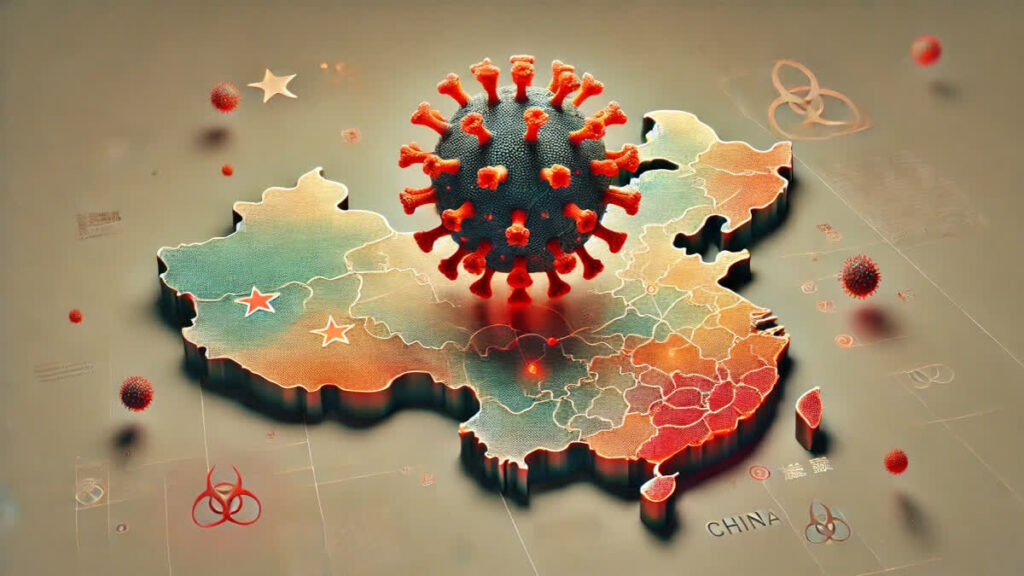Terrifying images of patients flooding hospitals and collapsing in waiting rooms in China have sparked fears of another pandemic.
The photos, which have gone viral on social media, appear to show a surge in cases of human metapneumovirus (HMPV), a respiratory infection that causes flu-like symptoms.
What is HMPV and Should We Be Worried?
HMPV is an upper respiratory infection that affects people of all ages, but it’s more severe in young children and the elderly.
Chinese authorities have reported a steady rise in HMPV cases, but they stress that this is normal during the cold winter months.

Global health expert Dr. Dicky Budiman says that while HMPV is not a new virus, it’s often overlooked because it’s not as well-known as other respiratory viruses like influenza or RSV.
How Widespread is HMPV?
Cases of HMPV have been reported in several Asian countries, including Indonesia, Malaysia, Hong Kong, India, and Kazakhstan, as well as in the US.
In response to the outbreak, the Indonesian island of Bali has stepped up monitoring of foreign visitors, especially those from China and Malaysia, and is requiring travelers to fill out a health declaration form before arrival.
What Are the Symptoms of HMPV?
The symptoms of HMPV are similar to those of other respiratory illnesses, including a cough, fever, runny nose, headache, and general aches and pains.
However, HMPV can cause more serious illnesses like pneumonia or bronchitis, which can be fatal to people with weakened immune systems, the elderly, or young children.
Dr. Budiman notes that early investigations have shown that HMPV may have a higher likelihood of affecting the nervous system and causing cognitive issues.
Can We Prevent the Spread of HMPV?
There is currently no vaccine or antiviral medication for HMPV, but vaccines are being developed.
Dr. Budiman stresses that preventive measures like wearing masks, frequent hand washing, proper ventilation, and avoiding crowded spaces are crucial to minimizing the impact of the virus.
He also emphasizes the importance of early detection and management, including supportive care like rest and hydration.
Should We Panic?
While the recent footage from China is alarming, health experts say that there is no need to panic. Dr. Pandu Riono notes that spikes in flu and acute respiratory infections are usually seasonal, and the rise of HMPV at the end of 2024 and the beginning of 2025 is nothing unusual.
Dr. Budiman says that the potential for HMPV to become a full-blown pandemic is still low, but it’s essential to be aware of the virus and take steps to protect ourselves.
How to Stay Safe During the Outbreak
With many Australians traveling to Asia during the school holiday period, it’s essential to take precautions to stay safe.
Dr. Budiman recommends wearing masks, washing hands regularly, and avoiding crowded spaces. By taking these simple steps, we can minimize the risk of infection and prevent the spread of HMPV.

